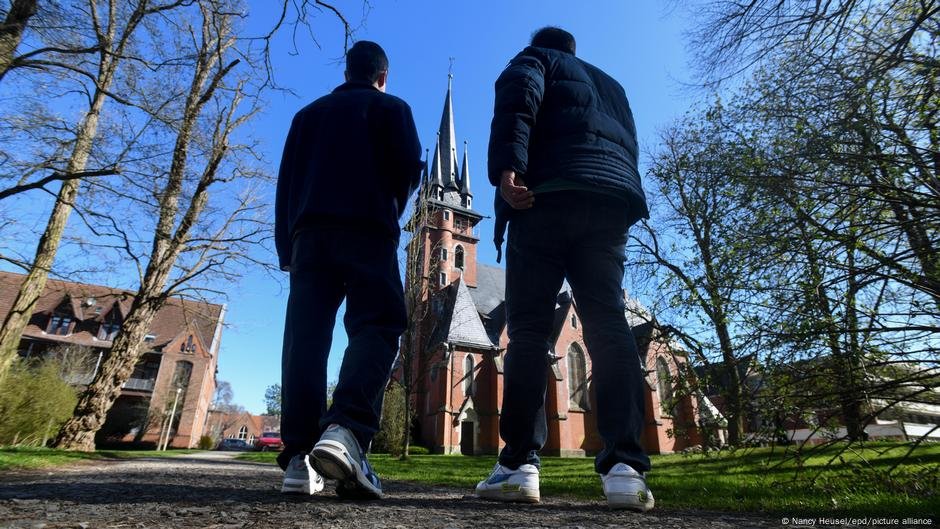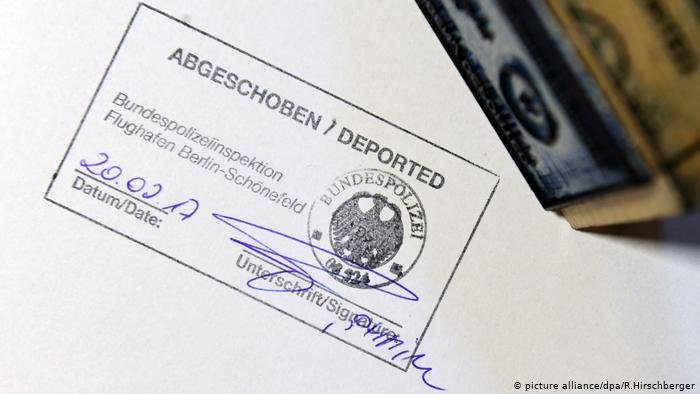Church asylum is a contentious issue in the migration debate in Germany. The number of cases rose significantly last year, amid an increase in deportations. InfoMigrants spoke to Stephan Reichel, chairman of the church asylum advocacy charity Matteo, about the subject.
In 2024, significantly more migrants in Germany received church asylum than in the previous year. According to a report in the German tabloid newspaper Bild, citing information from the Federal Office for Migration and Refugees (BAMF), the number rose to 2,386 cases -- over 300 more than the previous year. Almost all were reportedly so-called Dublin cases, in which migrants entered Germany from a "safe third country."
InfoMigrants spoke to Stephan Reichel, chairman of the church asylum advocacy charity Matteo, who confirmed that "the numbers clearly show there has been an increase," especially with mounting pressure to deport people back to EU border states such as Poland and Bulgaria.
Most recently, the case of three Somali asylum seekers made headlines. They had entered Germany via Poland and successfully challenged their deportation. They are now housed in a Protestant church and could be granted church asylum there. Berlin’s Protestant bishop Christian Stäblein, commenting on the issue, called it "a service to society, which is thereby reminded of its foundation of mercy."
Read AlsoGermany: Church asylum requests rise as protection dwindles
What is Church asylum in Germany?
Churches in Germany have offered temporary shelter to refugees for decades under a long-standing humanitarian tradition. While church asylum has no firm legal basis, it is tolerated by authorities as an expression of the country’s Christian and humanitarian values.

The protection it offers is temporary, typically intended to delay deportation and give time for individual cases to be re-evaluated or for legal remedies to be explored. Reichel explains that most cases involve people facing deportation under the Dublin Regulation, which requires asylum seekers to apply in the first EU country they enter. However, he points out that at least 80 percent of applications for church asylum are rejected.
Read Also
Rejection of asylum seekers at border: German government defies court ruling
Preventing deportations
Some people working in the field of migration question the purpose or use of church asylum in some cases. The academic and migration and legal expert Daniel Thym expressed skepticism to Bild: "Morally, I cannot understand why the churches prevent deportations to other EU countries," he reportedly said. An unnamed asylum caseworker was quoted as saying: "You can’t get to these people anymore. Legally mandated deportations are delayed for months or fail entirely."
However, Reichel defends the practice. He insists that the church acts on humanitarian grounds and evaluates each case individually. "There’s no refugee who hasn’t experienced severe border violence, even in so-called safe countries like Bulgaria or Poland," he says.

"A significant number of those currently in church asylum are Syrians who traveled through Bulgaria," he adds. "There are deportations to Romania, and from there, people are sometimes sent directly back to Syria," he says.
Increasingly hardline migration policies and the rise in deportations have made many refugees and migrants more desperate, Reichel tells InfoMigrants. "People are panicking due to the rise in deportations and especially because of the halt to family reunification, which has deeply affected many."
He also notes that there is rising pressure in refugee accommodation centers in Dresden and locations in Bavaria, such as measures preventing asylum seekers from leaving the premises without authorization. A practice that Reichel points out is illegal.
Read AlsoGermany: Deported 'without warning,' despite efforts to integrate and employment
Church vs state?
In terms of the increasingly hardline migration policies being enacted by the federal government, Reichel says the Church "is handling it well," citing Bishop Stäblein’s vocal support, though he notes that the Bavarian regional bishop has remained silent. Overall, however, he says the Catholic and Free Churches "are showing strong willingness to offer support."
He also states that he believes there is cooperation towards the Church from the Bavarian Interior Ministry under Joachim Herrmann, who has "shown an understanding for asylum." Bavaria is governed by the CSU party, which has a Christian base to its policies.
Politically, many parties are split on the issue. Reichel points out that in some states, such as Schleswig-Holstein and Hamburg, however, some center-left SPD and Green politicians are very critical of church asylum. He notes that the Left Party (Die Linke) has also now taken a clear position on the issue. In 2024, for instance, they stated in an online commentary that they believed church asylum should be "respected." Meanwhile, in contrast he believes, "the CSU is increasingly distancing itself from its Christian voter base."
However, "Catholic engagement is growing," overall in Germany Reichel concludes, "but it’s always about individual people -- not abstract policy."
Read AlsoItaly: Church claims Bishop under attack over migration shelter
With KNA
